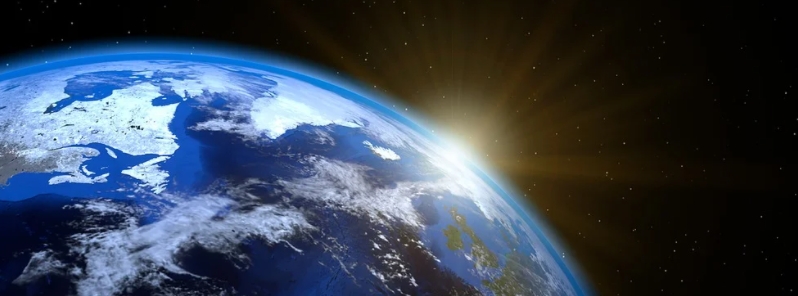Earth is spinning faster than it has in 50 years, scientists reveal

The Earth has been spinning on its axis faster than it has in five decades, scientists around the world have revealed. 2020 already saw some of the shortest days recorded in history, with 2021 predicted to be even shorter.
"It is certainly correct that the Earth is spinning faster now than at any time in the last 50 years," confirmed Peter Whibberley, a senior research scientist at the National Physical Laboratory.
Scientists have noted that the Earth is now completing its rotation in 1.4602 milliseconds less than the usual 86 400 seconds.
The speed of the Earth's rotation varies constantly due to the complex motion of its molten core, oceans, and the impact of celestial bodies, including the Moon.
The friction of the tides and the change in distance between the planet and its natural satellite make for daily variations in the speed the Earth rotates, and even snow accumulating on mountains and melting in the summer can affect it.
Since 2020, a full day has been taking less than 24 hours, with July 19 declared as the shortest day since record-keeping began in the 1960s.
During that time, the International Earth Rotation and Reference Systems Service (IERS) announced that no leap second would be added to the world's official timekeeping in December 2020. Leap seconds are time adjustments like leap years– timekeepers at IERS Paris have added leap seconds to 27 days since the 1970s, keeping atomic time in line with solar time.
Since leap seconds are always added on the final day of June or December, it is most likely that the next date for a leap second is June 30, 2021.
Scientists said the days are about 0.5 seconds shorter than 24 hours– though the time difference is only noticeable at the atomic level, its effects could be significant.
World timekeepers are now discussing whether to delete a second from time– a negative leap second– to bring time passage back in sync with the Earth's rotation.
"It’s quite possible that a negative leap second will be needed if the Earth’s rotation rate increases further," Whibberley stated. "But it’s too early to say if this is likely to happen."
"There are also international discussions taking place about the future of leap seconds, and it’s also possible that the need for a negative leap second might push the decision towards ending leap seconds for good."
On Sunday, January 3, 2021, the solar day lasted just 23 hours, 59 minutes, and 59.9998927 seconds. In the course of 2021, atomic clocks are expected to accumulate a lag of around 19 milliseconds.
Featured image credit: Pixabay

interesting & thorough coverage of this natural phenomenon, Julie..
Matthew 24:22
Mark 13:20
I find this article interesting from a prophetic view point. Mark 13:20 talks about the last days. It points to the days being shortened. I wonder if this is a per-cursor to the days before the great tribulation as spoken of in the Bible?
I hope this means the “LORD OF SPIRITS JEHOVAH GOD” is coming soon.